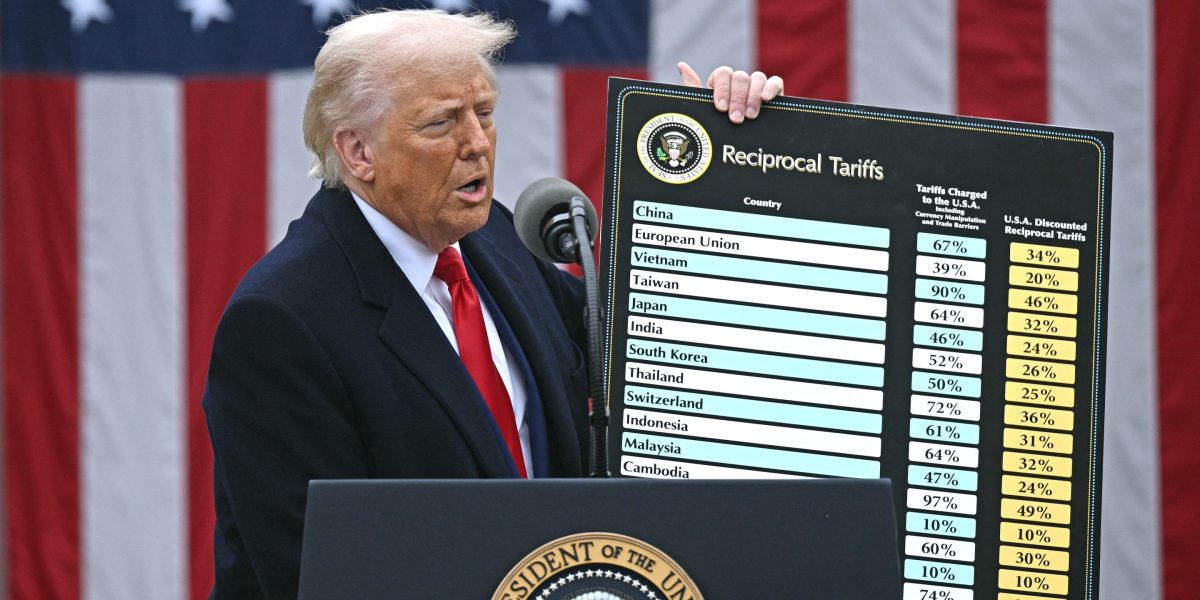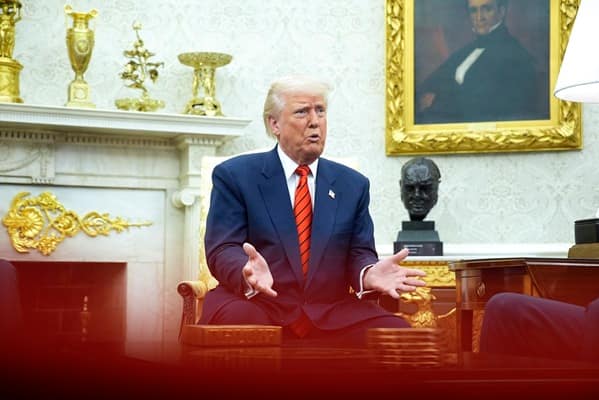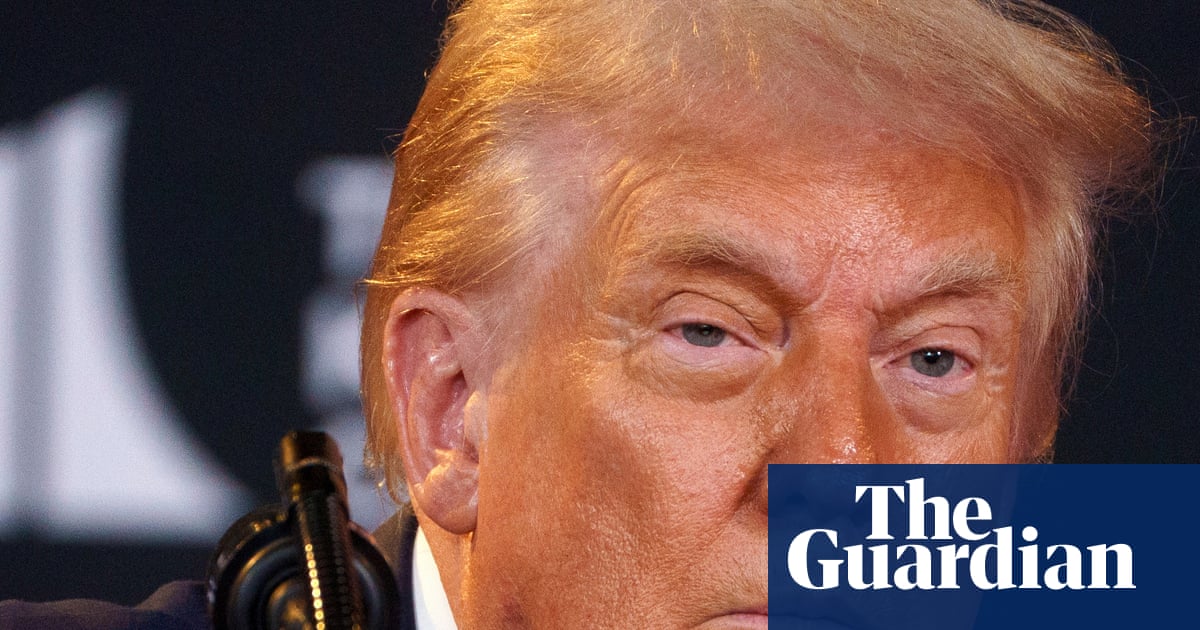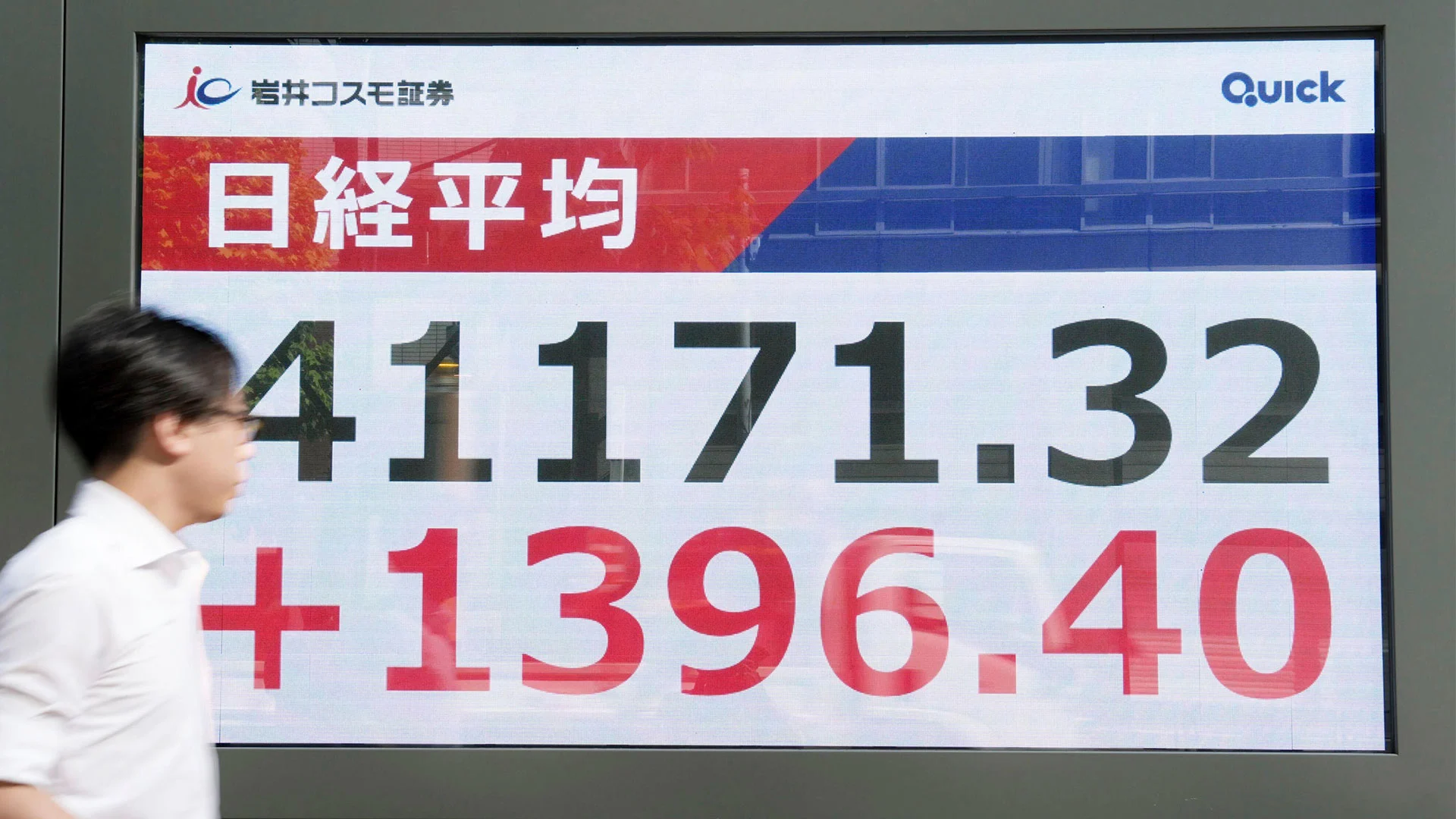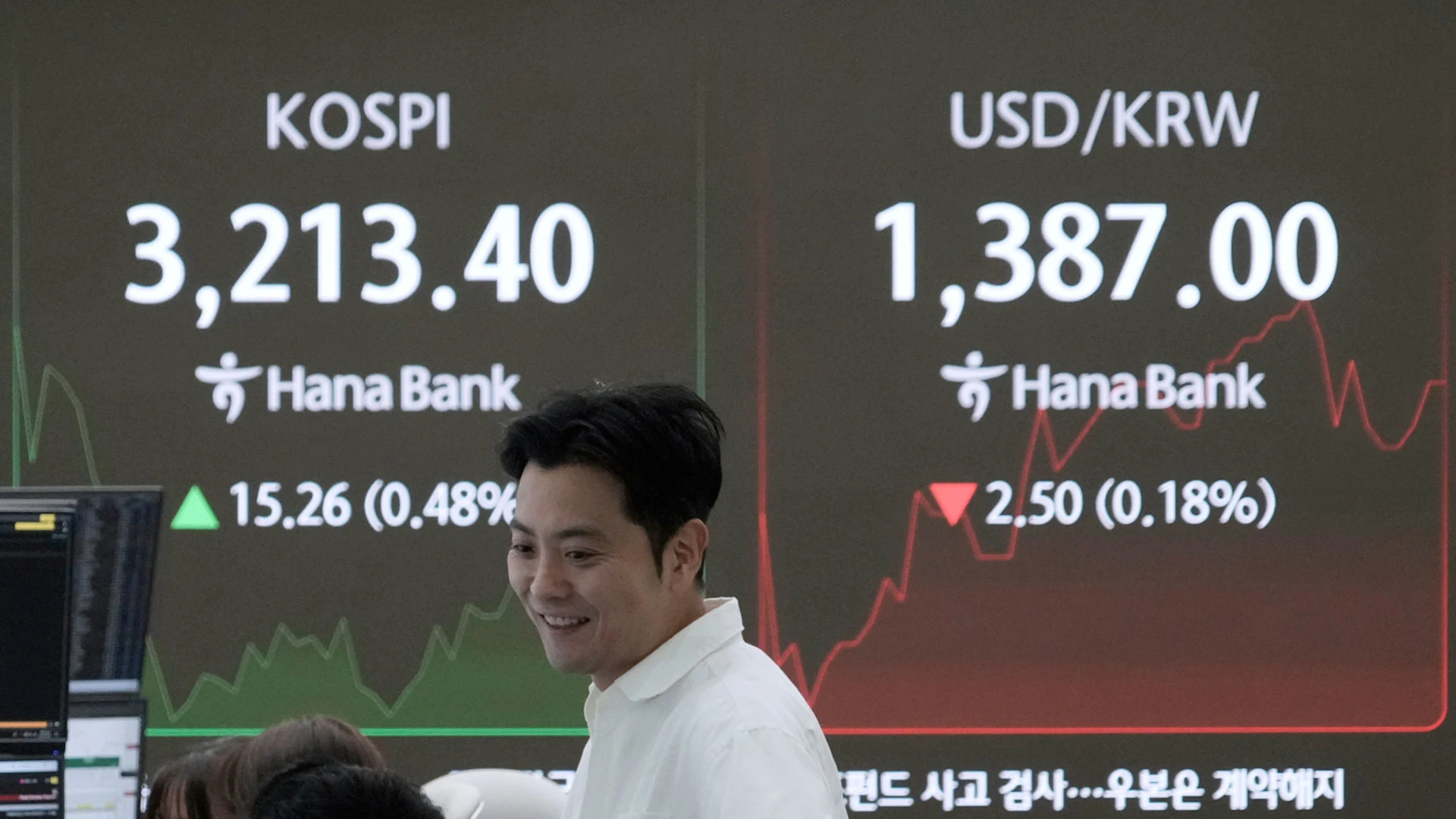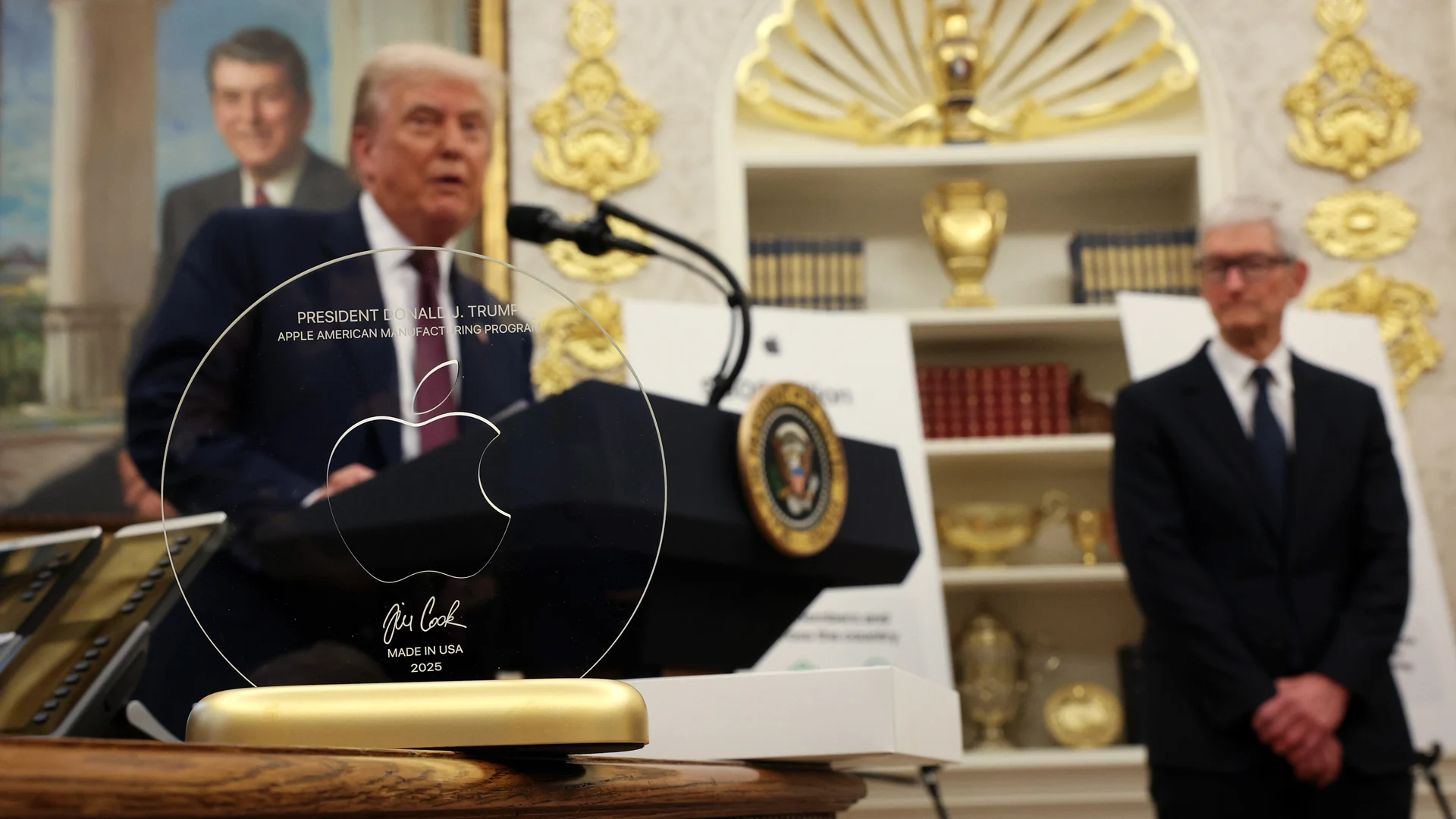#us-economy
#us-economy
[ follow ]
US news
fromFortune
1 week agoThese 2 states will determine if the U.S. slips into a recession while one more enters the danger zone, top economist says | Fortune
U.S. economy narrowly avoids recession; one-third of GDP in or near recession, another third stagnant, tariffs and supply-chain disruptions weigh on growth.
US news
fromFortune
3 weeks agoAmerica is 'flirting with recession' if tech investment slows, according to new modeling-but bubble risk is still smaller than dot-com era | Fortune
U.S. economic growth heavily depends on tech investment, risking a downturn that could push GDP growth below 1% in 2026 and strain households.
US politics
fromLondon Business News | Londonlovesbusiness.com
1 month agoDow Jones remains positive - London Business News | Londonlovesbusiness.com
U.S. growth remains resilient but uneven, with housing and labor supporting markets while elevated yields, fragile sentiment, political risks, and geopolitics create pressure.
fromFortune
1 month agoJamie Dimon says economy is 'weakening' but even he can't make sense of all the different data: 'Maybe, one day, AI will fix that problem' | Fortune
JPMorgan Chase CEO Jamie Dimon issued a sobering assessment of the American economy in an interview with CNBC on Tuesday, acknowledging clear signs that it's growing weaker and expressing uncertainty over its future trajectory. Still, he stopped short of making a recession call, saying that there is such a range of data that it's hard to parse. "We get data like you wouldn't believe. The government data is important. Our own data is important."
US news
fromFortune
2 months agoTrump's reciprocal tariffs could be struck down as soon as this month - and the administration is warning of economic apocalypse
The Trump administration warns of complete disaster for the U.S. economy if its reciprocal tariffs are struck down, showing great concern over an upcoming court ruling.
US politics
fromBusiness Insider
2 months agoThe AI spending boom is boosting US GDP - and potentially hiding looming problems
Researchers at Pantheon Macroeconomics found that AI-related spending accounted for a 0.5 percentage point difference in annualized GDP growth for the first half of the year.
Tech industry
fromFortune
2 months agoThe bond market is signalling that a September cut from the Fed is no longer locked in
"U.S. producer prices surged 0.9% m/m in July, far exceeding expectations of 0.2% and marking the largest monthly gain since June 2022. On an annual basis, PPI rose 3.3%, up from 2.4% in June, while core PPI jumped to 3.7% from 2.6%. The data shattered forecasts across the board, underscoring the inflationary impact of recent tariff policy and justifying Fed caution regarding rate cuts," George Vessey of Convera told clients this morning.
US politics
fromBusiness Insider
2 months agoBad news for US shoppers: The cost of everything from laptops to cars is likely to keep rising
"Descriptive evidence shows that goods categories heavily exposed to imports have indeed experienced sizable price increases since the beginning of this year, relative to their prior trends."
US politics
fromFortune
2 months agoStocks leap on Palantir earnings but Goldman warns the U.S. 'is near stall speed' - where the economy 'weakens in a self-reinforcing fashion'
Palantir's revenues soared nearly 50% to almost $1 billion and net income increased 144%, boosting investor confidence in AI’s role in tech growth and job reduction.
Tech industry
fromSFGATE
3 months agoU.S. Economy Grew 3% Despite Trump's Tariffs as He Repeats Call for Fed Chair To Lower Rates
Today's GDP reading was stronger than expected, but much like the first quarter data-which showed a modest decline in economic activity-the details really matter. Put simply, the first quarter wasn't as bad as the headline figure implied, and this quarter isn't quite as strong as implied in the data.
US politics
fromFortune
3 months agoTrump scores another big trade deal after securing promise of massive investment, but China will be less willing to cave, analyst says
"They got the 15% rate because they were willing to provide this innovative financing mechanism," he told Bloomberg TV on Wednesday, when asked if other countries could get a similar rate.
US politics
fromwww.cbc.ca
3 months agoTrump signs law to create regulatory regime for stablecoins, a huge win for crypto backers | CBC News
U.S. President Donald Trump signed the GENIUS Act to create a regulatory regime for U.S.-dollar-pegged cryptocurrencies, facilitating their use for payments and money transfer.
US politics
fromFortune
3 months agoPenny Pennington of investment advice firm Edward Jones: 'We're a health and wellbeing company'
Diane Brady highlights how the U.S. economy remains resilient despite the ongoing tariff wars. Market reactions indicate mixed sentiments about future leadership, like fears surrounding President Trump's potential actions against Federal Reserve Chair Jerome Powell.
Business
fromBusiness Insider
3 months agoEx-Intel CEO backs Trump's sovereign wealth fund plan - and says it can help the US keep up with China in the tech race
Gelsinger emphasized that while American companies are making significant breakthroughs in technology, the challenge lies in scaling these innovations, which requires patient, long-term capital typically unavailable from traditional financing.
US politics
US news
fromFortune
3 months agoIgnore 'Sell America' call, says JPMorgan's investment strategy boss-neither tariffs nor national debt are enough to clip the wings of U.S. dominance
Jacob Manoukian remains confident in the U.S. economy's long-term dominance despite recent market volatility and political pressures.
[ Load more ]










